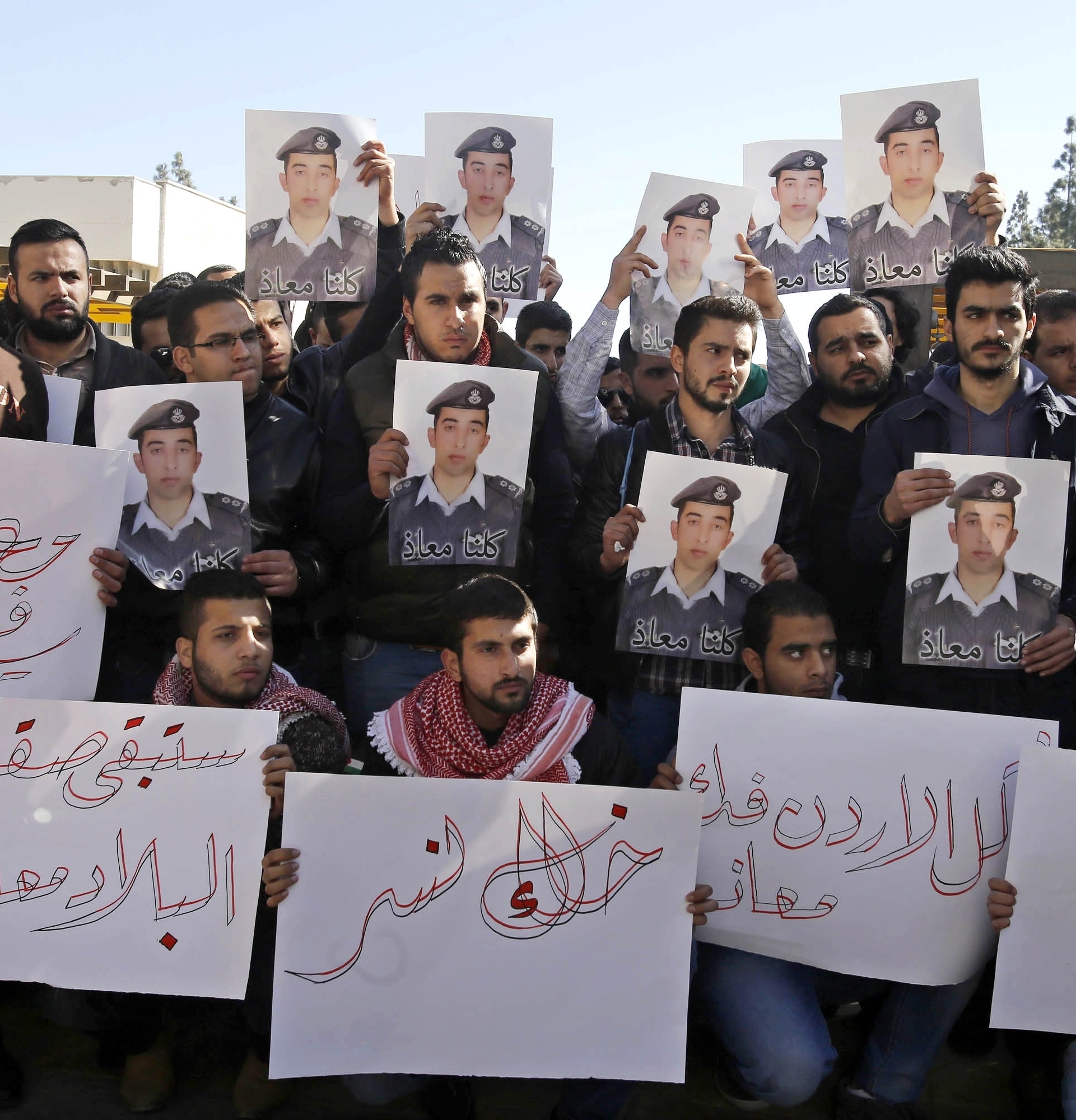U.S. hopes kidnapped pilot’s murder will toughen Jordan’s resolve
The Islamic State’s burning to death of a captured Jordanian air force pilot is likely to harden Jordan’s position as a member of the U.S.-led coalition striking the militant group in Syria, U.S. officials said on Tuesday. The officials, speaking on condition of anonymity, said Jordan has not retreated from the air campaign against IS since the group captured pilot Mouath al-Kasaesbeh after his jet crashed in northeastern Syria in December. One official said he expected al-Kasaesbeh’s killing “to have an electrifying effect” on Jordan. But the campaign also poses risks for Jordan, where there are pockets of support for IS and which has played down its military role in a neighboring Arab country.
The Jordanians’ response to the brutal murder of their pilot is going to be strong and forceful, and the Jordanian response will be to be more engaged, not less engaged. The King feels that the gloves are off.
Republican Senator Lindsey Graham, who was among a group of U.S. lawmakers who met with the King of Jordan
The Islamic State released a video on Tuesday that appeared to show al-Kasaesbeh being burned alive. The video surfaced on the same day Jordan’s King Abdullah visited Washington, and the United States announced plans to boost annual aid to Jordan to $1 billion from $660 million. Jordanian officials have indicated recently they may expand their role in the anti-IS battle, U.S. officials said, although what specific new help Amman might offer is unclear. Former State Department counter-terrorism chief Daniel Benjamin said Islamic State’s use of extreme brutality is aimed more at attracting recruits - where it has seen some success -than splitting the coalition.
Ultimately, though, the atrocities and the misgovernance of those under ISIS rule will turn the broader Muslim population more forcefully against it and strengthen the resolve of coalition members.
Former State Department counter-terrorism chief Daniel Benjamin

Middle East Islamic State